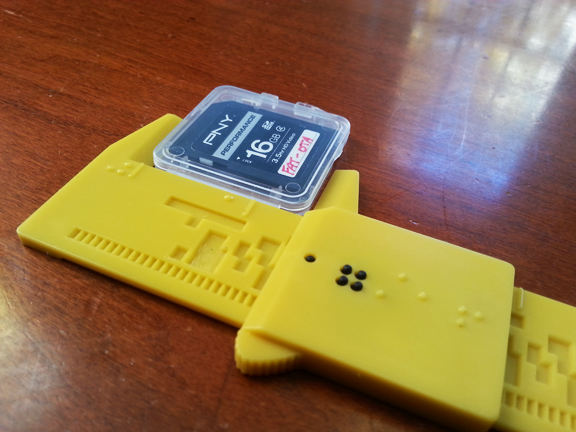"Implicitly or otherwise, the educational system has diminished expectations of the blind. If science is hard for me, a sighted adult might reason, it must be doubly hard for a blind person."
— Geerat J. Vermeij, renowned blind marine biologist
Can Blind People Truly Excel in Science?
The opportunity to excel in fields requiring a systematic framework, use logic for problem solving and entail a disciplined approach, provides individuals with a way to think about their world and make sense of their surroundings. While taken for granted by most schoolchildren in the country, this opportunity is limited for those that are blind. Blind people cannot observe, collect and process data in the same way sighted people do, so frequently they are not given the same early encouragement, training and tools as their sighted peers.
Giving Blind Children the Tools to Pursue Scientific Discovery
 National Braille Press strives to present blind children and their parents with science products as early as possible. The precursors to scientific thinking usually begin with an early exposure to natural science such as toddler board books about wild animal families, early-reader books about the life cycles of butterflies and activity books with simple science experiments. This sparks natural curiosity and paves the way for future interest and exploration.
National Braille Press strives to present blind children and their parents with science products as early as possible. The precursors to scientific thinking usually begin with an early exposure to natural science such as toddler board books about wild animal families, early-reader books about the life cycles of butterflies and activity books with simple science experiments. This sparks natural curiosity and paves the way for future interest and exploration.
- Out-of-Sight Science Experiments for Grades 2-5
- Hands On Science Activities: For Pre-school to Second Grade
- The Tactile Caliper
- Measuring Penny
How Does Braille Complement Technology?
An abundance of technical tools and gadgets is available to organize our lives, entertain us and connect us to home or work. For blind people, the benefits of technology are even greater as these new tools provide the basic ability to access information that was previously unavailable.
Initially, students need to be able to take notes in class, work on papers, and refer to course materials in order to succeed in school. As they progress towards a professional job, adults must be able read email, obtain information from the Internet, develop a PowerPoint presentation, or a legal brief. Given the expectation of technical literacy in school and in the workforce, it is vital that blind children also have technical tools that are available and affordable.
Blind people who learn braille and develop fluency with technology have a significant advantage, are more employable, and are able to shift blindness from a problem to an inconvenience.
